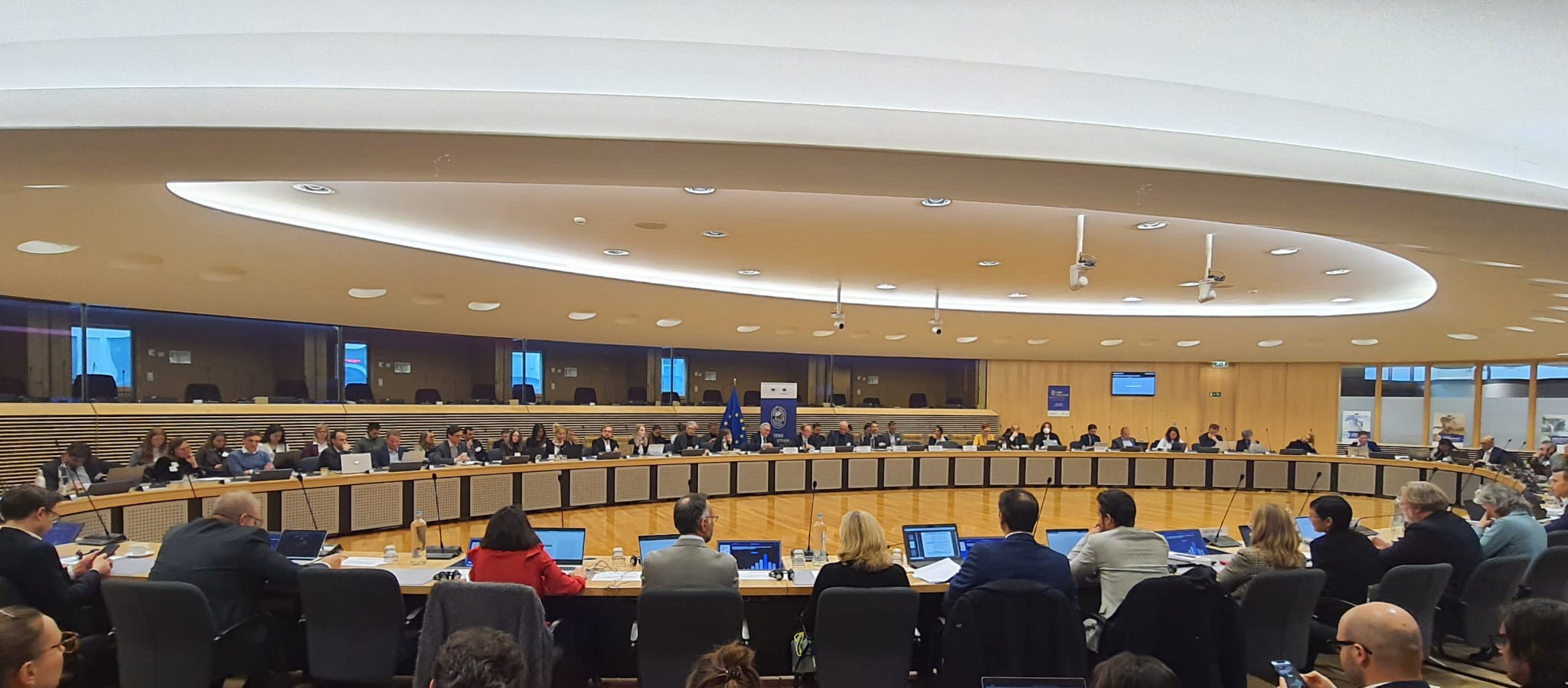Zero Pollution Stakeholder Conference

The findings of the first Zero Pollution Monitoring and Outlook report, which guided the discussions, highlighted positive improvements in the area of air and pesticide pollution but a worrying lack of progress regarding noise and soil pollution.
High level speakers and participating stakeholders discussed the need for integrated and cross-sectoral approaches for achieving major pollution reductions. In the afternoon the conference provided the opportunity to delve deeper into the intersection between pollution and health, pollution and biodiversity or pollution and circular economy.
The morning session opened with a video message by Frans Timmermans, Executive Vice-President of the European Commission in charge of the European Green Deal, who stressed the importance of aligning EU air quality standards more stringently with WHO guidelines. He noted the great societal costs of delaying pollution reduction. He was followed by Apostolos Tzitzikostas, 1st Vice President of the Committee of the Regions (CoR), represented by Marieke Schouten Member of the CoR, who emphasised the vital importance of regions and cities in this endeavor.
Together Hans Bruyninckx, Executive Director of the European Environment Agency and Bernard Magenhann, Deputy Director General of the Joint Research Centre, then presented the findings of the first Zero Pollution Monitoring and Outlook report and set the scene for the discussions to follow.
Panelists from the CoR, the EEB, UNEP, EurEau and Eurelectric shared their thoughts on the report’s conclusions and generally welcomed the publication as an important piece of evidence not to be neglected by policymakers. Some crucial improvements in action on air pollution were praised. However, great inequalities in exposure to dangerous levels of air quality were lamented as a continued key policy challenge. Among other areas in which improvements are lacking, are soil and noise pollution. While all stakeholders welcomed the report, some crucial data gaps were pointed out, for example regarding indoor air pollution.
Several speakers mentioned the importance of designing policy following the report in a smart and coherent manner. There is a great need for and a great benefit to designing cross sectoral approaches and creating synergies in achieving pollution reductions of different kinds. However, targets should be set in a coherent manner and should be practically implementable. Eurelectric Secretary General Kristian Ruby, pointed to major regulatory obstacle to the rollout of renewables in this context. Additionally, speakers noted the importance of holistic approaches to pollution reductions. Pär Dalhielm, Acting President of EurEau exemplified this with the point that water treatment measures cannot substitute pollution reduction at their source.
Both the EEB and UNEP situated the discussions within the current geopolitical moment. According to Patrick ten Brink (EEB), our current trajectory of achieving energy independence is already a peace project and we should withstand all efforts to dilute or drop Green Deal legislations on the premise of energy security. Finally, Mr Sinkevičius, Commissioner for environment, maritime affairs and fisheries closed the morning session with a video message. He congratulated the JRC on the report and called for fast and determined action on the ZPA.
The afternoon’s deep dive sessions provided a forum for detailed discussion on specific dimensions of the report and the Zero Pollution Ambition. In the session on ‘Zero Pollution and Health’, chaired by Martin Adams, EEA, speakers stressed the general urgency to act on both health risks and health inequalities. The discussions painted a mixed picture in terms of the progress made and remaining challenges.
In the deep dive on ‘Zero Pollution and Biodiversity’, chaired by Alessandra Zampieri, JRC, it was highlighted that especially for air pollution, we see that reaching the zero pollution targets of 2030 are within reach. However, knowledge sharing capacities must be improved, especially locally, to communicate better about the urgency of reducing the impact of pollution on biodiversity.
Last, the key message in the session on ‘Zero Pollution and Circular Economy’ concerned the importance of including a consumption and production perspective in the reports outlook dimension. Current trends for increasing consumption until 2030, participants agreed, are beyond planetary limits.
A full recording of both the morning session and the afternoon’s deep dives is available following this link.
The Zero Pollution Stakeholder Platform is a joint initiative of the European Commission and the European Committee of the Regions. It acts to support the implementation of the Zero Pollution Action Plan by defining a shared vision on how to achieve the zero pollution objectives.
